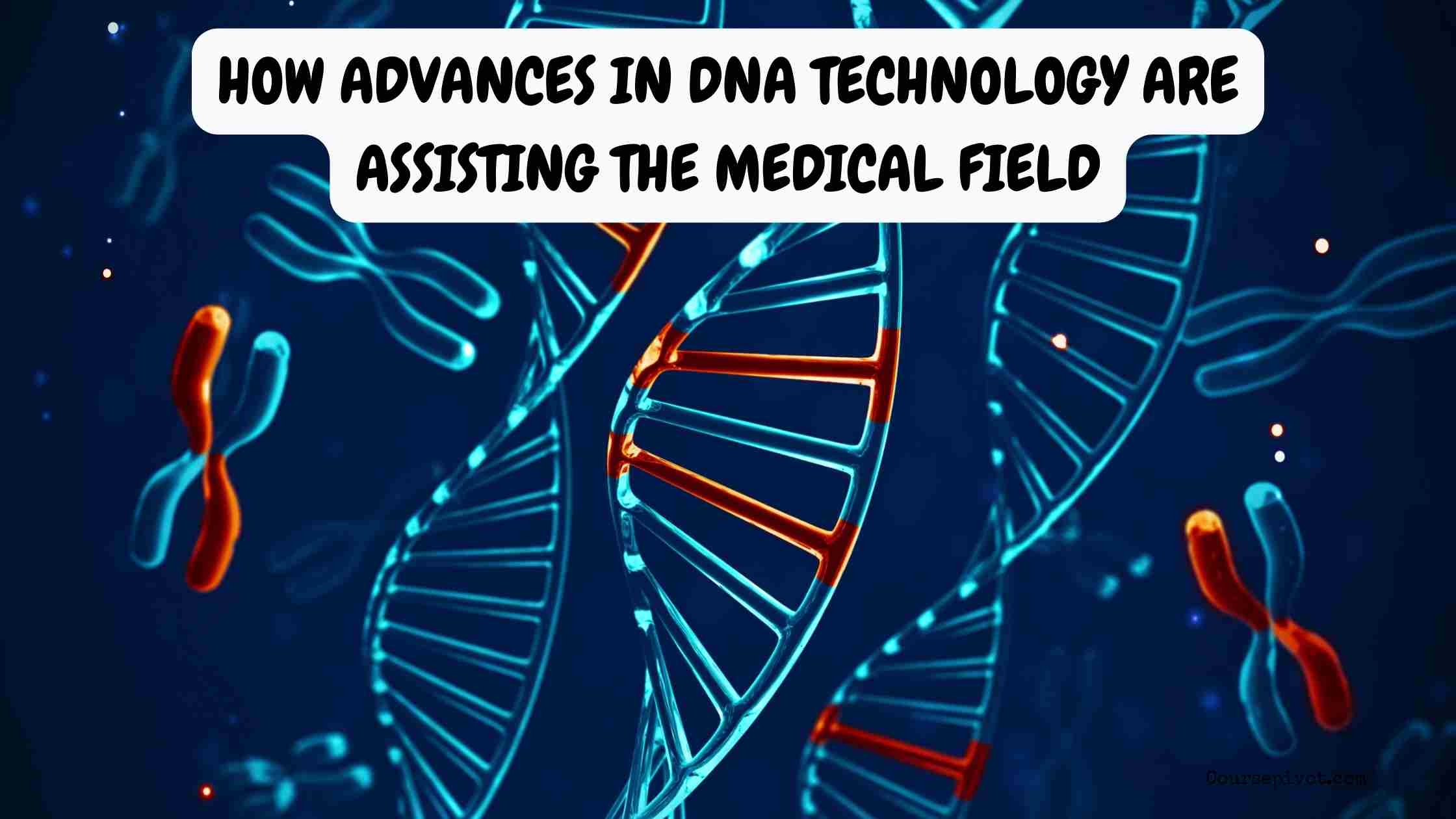
How Advances in DNA Technology Are Assisting the Medical Field
The rapid progress in DNA technology has transformed medicine in ways that were unimaginable just a few decades ago. Today, advances in genetic science are not only improving how we diagnose and treat diseases, but they’re also shaping the future of personalized medicine, public health, and medical research.
Table of Contents
If you’re curious about how DNA technology is helping healthcare professionals, you’re in the right place. Let me take you through the key ways these innovations are revolutionizing medical practice and why they matter so much.
Unlocking the Power of DNA in Medicine
DNA, the blueprint of life, holds vital information about our health risks, disease susceptibility, and potential treatment responses. Thanks to breakthroughs in DNA sequencing, editing, and analysis, medical professionals can now harness this information more effectively.
Here’s how:
1. Precision Diagnosis
One of the biggest advances DNA technology has brought is in accurate and early diagnosis.
- Genetic testing can identify mutations linked to inherited diseases such as cystic fibrosis, Huntington’s disease, and certain cancers.
- For rare or complex conditions, DNA analysis helps doctors pinpoint the exact genetic cause, avoiding long diagnostic odysseys.
- Pathogens like viruses and bacteria can be genetically sequenced to detect infections faster and determine antibiotic resistance.
This level of precision means treatments can start earlier and be tailored specifically to the patient’s genetic profile.
2. Personalized Medicine
No two patients are exactly alike, and DNA technology is making personalized treatment a reality.
- Pharmacogenomics studies how genes affect a person’s response to drugs. This helps doctors prescribe the most effective medications with fewer side effects.
- In cancer care, tumor DNA sequencing reveals mutations that can be targeted by specific drugs, turning generic chemotherapy into precision oncology.
- Genetic information guides decisions in fields like cardiology, psychiatry, and neurology, improving outcomes through customized care.
I find this shift towards individualized medicine incredibly exciting because it marks a move away from “one-size-fits-all” treatments to therapies designed for each unique patient.
3. Gene Therapy and Editing
Thanks to advances like CRISPR-Cas9, gene editing is now entering the clinic.
- Gene therapy involves correcting or replacing faulty genes responsible for diseases.
- It has shown promise in treating inherited blindness, certain immune disorders, and blood diseases like sickle cell anemia.
- Ongoing research aims to use gene editing to tackle a wide range of conditions, potentially offering permanent cures.
The ability to edit DNA precisely is a medical breakthrough that could redefine treatment paradigms in the near future.
Read our blog on When Have You Been Impacted Because Someone Else Demonstrated Generosity Toward You or Your Family?
4. Predictive and Preventive Medicine
DNA technology also helps in predicting disease risk and enabling prevention.
- Genetic screening can identify individuals at high risk for conditions such as breast and ovarian cancer (BRCA mutations), heart disease, and Alzheimer’s.
- Armed with this knowledge, patients and doctors can take proactive steps: lifestyle changes, preventive surgeries, or enhanced monitoring.
- This approach shifts healthcare from reactive treatment to proactive disease management, improving quality of life and reducing costs.
5. Advancements in Infectious Disease Control
DNA sequencing technologies have been pivotal in tracking and controlling infectious diseases.
- The rapid sequencing of viral genomes, such as SARS-CoV-2, allowed researchers to understand mutations, track variants, and inform vaccine development.
- Hospitals use DNA tools to monitor antibiotic-resistant bacteria, improving infection control and patient safety.
- These advances contribute significantly to public health surveillance and outbreak response.
6. Medical Research and Drug Development
DNA technology accelerates medical research by providing deep genetic insights.
- Scientists can study how genes influence disease mechanisms, leading to novel drug targets.
- Genomic databases allow for large-scale analysis linking genetics with health outcomes.
- Clinical trials increasingly use genetic data to select participants and measure responses, enhancing success rates.
This research foundation is crucial for developing next-generation therapies and improving existing treatments.
Read our blog on Explain How Hereditary Diseases Are Passed from One Generation to Another
Why These Advances Matter to Us All
In my experience, the integration of DNA technology into medicine is one of the most transformative forces in healthcare today. It means:
- Faster, more accurate diagnoses
- Treatments tailored to individual genetics
- Potential cures through gene editing
- Smarter prevention strategies
- Enhanced control over infectious diseases
- Groundbreaking medical research accelerating new therapies
These advancements empower medical professionals to deliver better care and open exciting possibilities for the future of health.
The DNA Revolution in Medicine
The rise of DNA technology has truly reshaped how medical professionals understand and treat diseases. From precision diagnostics to personalized therapies and beyond, these tools are making medicine more effective and patient-centered than ever before.
As DNA science continues to evolve, I believe its impact on medicine will only grow, offering hope for cures to diseases once thought incurable and enabling healthier lives worldwide.
Have you ever wondered how your own DNA might influence your health? With ongoing advances, the answer is becoming clearer every day—and medical science is ready to use that knowledge to improve patient care like never before.
Cite this article
You can copy and paste your preferred citation format below.
Martin, L. & Arquette, E.. (2025, May 27). How Advances in DNA Technology Are Assisting the Medical Field. Coursepivot.com. https://coursepivot.com/blog/describe-how-advances-in-dna-technology-are-assisting-the-work-of-those-in-the-medical-fields/



